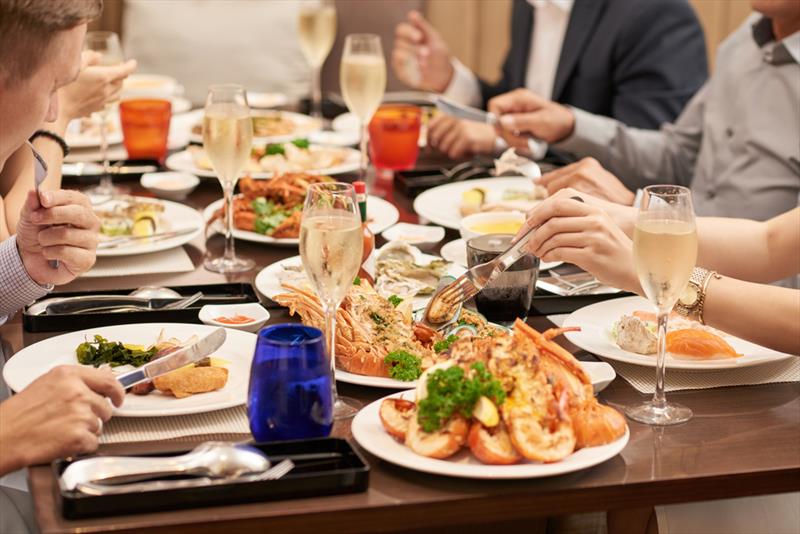
Aussie food in demand, but where's the origin labelling in foodservice?
by Jessica McInerney 23 Aug 2018 04:24 BST

Seafood in restaurant © Jessica McInerney
The "Food demand in Australia" ABARES report released today shows Aussies want to know where their food comes from and Seafood Industry Australia, the national peak body for seafood, has urged the government to take action and extend same type of Country of Origin Labelling laws which apply to seafood sold in retail, to the foodservice sector.
Demand for Aussie grown produce both domestically and in international markets is on the rise, according to the "Food demand in Australia" report released by the Australian Bureau of Agricultural and Resources Economics (ABARES) today (August 22, 2018).
"Aussies are supporting our farmers and choosing to buy Australian produce," Minister for Agriculture David Littleproud said in a press release.
"This report shows consumers want clear food labelling and to be informed, and food producers should be listening to that message. The Coalition Government's Country of Origin Labelling will go a long way to helping inform consumers."
Seafood Industry Australia (SIA), the national peak body for seafood, has welcomed the report and comments by the Minister, and urged the government to take action to extend same type of Country of Origin Labelling (CoOL) laws which apply to seafood sold in retail, to the foodservice sector.
"SIA applauds the Minister for taking up the issue with fast-food sector, but more needs to be done and any changes needs to be legislated, as they are in the retail sector, not voluntary," Ms Lovell said.
"We know CoOL in foodservice is something consumers want and we know Australians love Australian seafood. Next to freshness, country of origin is the second most influential factor for a consumer choosing which seafood they buy.
"More than 86,000 consumers have signed petitions asking for mandatory CoOL for seafood sold in the foodservice industry and two Senate inquiries have called for it. There is a great opportunity to call out that origin on the menu in foodservice.
"The Northern Territory successfully introduced CoOL for cooked and pre-prepared seafood in the foodservice industry in 2008. We want the rest of the country to follow suit.
"CoOL has a number of benefits for the foodservice sector and can be a draw-card for consumers. White-cloth restaurants already highlight their use of Australian seafood proudly and display it as a badge of honour on their menus.
"We've argued for this change at a political level, however we were told consumers should just ask foodservice staff where their seafood is from, this doesn't work. Research conducted for SIA found 66 per cent of foodservice staff could not reliably tell customers where the seafood they were serving was from.
"For the industry to rely on ongoing staff education is far too costly and causes an unnecessary roadblock in daily operations. Mandatory CoOL removes the need for ongoing education as the country of origin is printed on menus and clearly visible for consumers. Menus can be updated during scheduled reprints or updates, just the same as adding if something is gluten or dairy free. Consumers want to know this information and this is the easiest way to provide it.
"The country of origin of the seafood being served in every foodservice outlet in Australia is already known, so CoOL would not be hard or time-consuming to implement. For food safety purposes, the country of origin of all seafood must known in every commercial kitchen. And, the Australian seafood industry has invested millions so that the high-quality seafood it delivers can be traced from the boat to the back door of every restaurant around the country.
"What SIA would like to see is Australian seafood identified on menus, simple as that. At a minimum we'd like to see something like Australian Barramundi, but businesses can be as specific as they want. For imported seafood, a simple 'i' to denote it's imported with a clear explanation of what it means printed somewhere on the menu.
"It's important we are clear, SIA are not vilifying imported seafood. There is nothing wrong with serving, ordering or eating imported seafood. But, as an industry, we believe consumers should be provided with the same information in foodservice.
"SIA welcomes the opportunity to work with the foodservice industry to implement CoOL, there are practical low-cost options out there to make this happen."